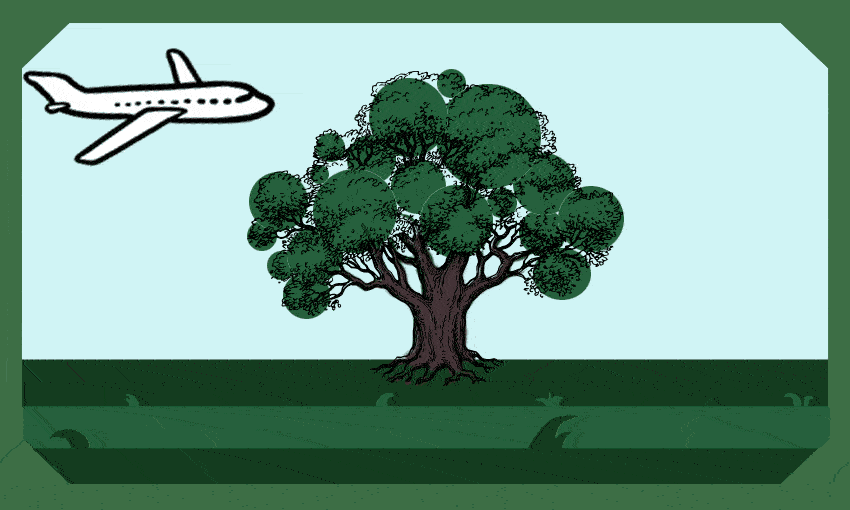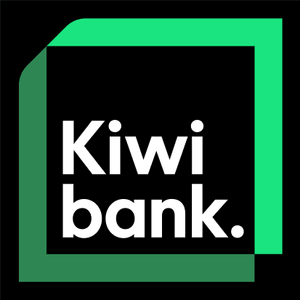The pandemic revealed just how much of our business travel could be done without. Now Kiwibank wants to turn those lessons into long-term change.
For years, businesses have sent their people up and down the country – and around the world – for all sorts of events and engagements. But when a return flight between Wellington and Auckland produces approximately 150kg of carbon dioxide, the environmental impact of taking that trip for a one-hour in-person meeting becomes difficult to justify.
As we all retreated indoors and online during the pandemic lockdowns, alternative options became the norm. Zoom calls replaced face-to-face kōrero, a shift followed by the swift realisation that a lot of our pre-pandemic business travel perhaps wasn’t as crucial as it had seemed.
For a B-Corp certified business like Kiwibank, it’s vital to ensure that customers can be confident they’re banking with a responsible financial lender. Tom Williams, the organisation’s head of sustainable finance, says the challenge is a many-faceted one.
“We’re trying to build people’s understanding that where you put your money, who you bank with, it really does matter. If your bank isn’t clear on its principles and what it will and won’t lend money for, then your money could be being used to fund things that you don’t personally support.”
While the manifestation of these principles is maybe most visible in investment initiatives – divesting from particular investment categories, for example – another step that Kiwibank has recently undertaken is the allocation of a travel carbon emissions budget for all of the bank’s executive team members.
“By giving each team member limits on their contributions to our overall travel emissions targets, we’re asking them to be more conscious and deliberate with their decisions around how they allocate their budget. Cost was already a driver but this is about adding another lens when considering if travel is really necessary,” explains Julia Jackson, head of purpose and sustainability at Kiwibank.
“An example of this guidance is flying in for a one-hour workshop or a business as usual meeting – that’s going to be a no. However, if the trip can be justified because it’s a strategic workshop over multiple days and it’s going to deliver on the outputs we seek, it’s probably a yes.”
Julia’s been with the bank for six years now, and when she started, her role didn’t exist. Since then, Kiwibank has made some serious commitments to reduce their climate impact – like establishing a climate action plan which included clear targets and commitments for our own business, and how they want to support customers to transition to a low carbon future.
In working to build (and justify) its reputation as a responsible business, Kiwibank has also been trying to figure out where it fits into the wider climate change discussion.
“Whilst climate change is a complex issue, a priority climate risk that we are exploring is the impact that coastal flooding will have on our customers’ homes, and the impact that has on our credit risk,” Williams says.
The bank recently released its sustainability report, celebrating the milestones achieved towards its key goals of making tamariki, Kiwi and Aotearoa better off since the launch of its sustainability framework in 2019. But while there has been good progress made in some areas, Williams admits there is still room for improvement in others.
“The report card has a bunch of scores – here’s how we’re measuring against certain targets – and we’re not nailing them all. We’ve still got plenty of work to go but we’re confident we are going in the right direction.”
The sentiment is shared by Jackson. “We know we’re not perfect … but every day is just about learning for us; finding new ways to develop new solutions.”
By 2021, the financial lender had already achieved a 53% reduction in their operational emissions since setting a baseline in 2018. To do even better it decided to reset its targets out to 2025. This will see the organisation reduce its emissions to around 70% of 2018 levels, which is in line with science-based targets. Besides focusing on reducing their emissions by limiting travel, Kiwibank now uses 82% recycled plastic to make its bank cards and has begun recycling a majority of its electronic waste. However, with the bank now having a look into how and who it lends to as a responsible lender, it says the greatest changes could be yet to come.
“The biggest emissions for corporate businesses are not from driving or travelling, it’s the emissions in your supply chain. For us, that is the lending. It’s said that for a bank, financed emissions can be almost 500 times bigger than what’s involved in the day-to-day running of the business,” says Williams.
The bank has begun researching how it can gather reliable data on the emissions being produced by the businesses and sectors to whom it lends money. That data will enable Kiwibank to have a better understanding of how they can ensure they are doing all they can to reduce their financial lending emissions, a goal which will likely be achieved by setting a carbon lending target.
Jackson knows there’s work to be done to hit the goals Kiwibank has set for itself, but they’re dedicated to doing so; to lead from the front in the urgent battle to address climate change.
“We’ve got an awesome opportunity to really challenge some of the ways we run businesses and think about finance and banking. We’ve looked at how we can actually deliver on these promises and do something that can prove we are operating differently.”
Follow Bernard Hickey’s When the Facts Change on Apple Podcasts, Spotify or your favourite podcast provider.

